
Why is protein so important?
I keep talking about protein; you are probably tired of hearing it but as you (hopefully) read in the last post, calories control whether your weight goes up, down or stays the same. But what most people miss out on is that protein will control what you look like when you do get to your goal weight. Because protein supports your lean muscle tissue, it allows you to achieve the body composition you are seeking. Now that we have established that, we are going to cover what protein is, where we get it from, the benefits of protein, how it helps us reach our goals and how to figure out the amount we need daily.
What is protein?
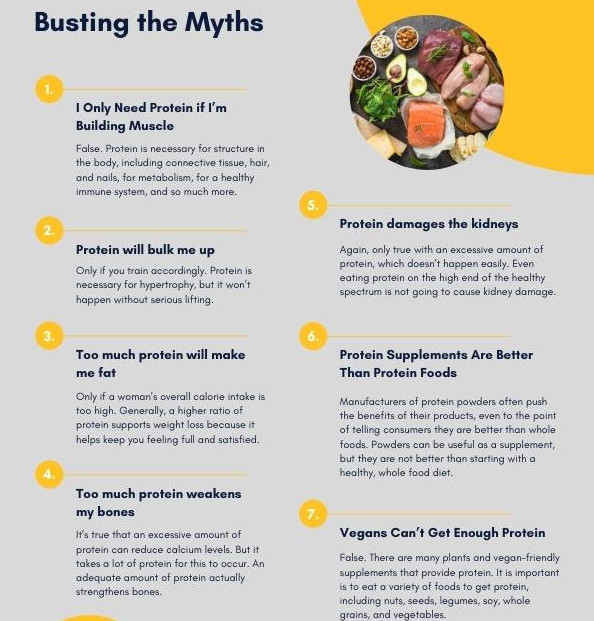
Where do we get protein from?
We get protein from animal sources such as chicken, fish, turkey, beef, pork, dairy, eggs, and protein powders. There are also plant sources of protein such as tofu, tempeh, and edamame (all coming from soy), lentils, beans, nuts, rice, quinoa and some fruits and veggies.
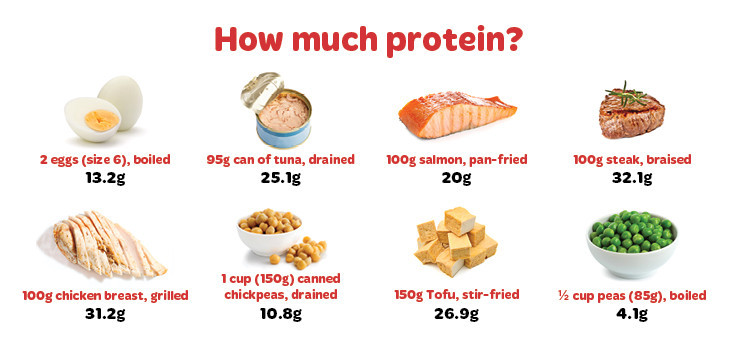
I do want to state that not all protein sources are created equal. There are complete protein sources such as meat, dairy, eggs and whey protein. The incomplete protein sources are plant – based protein sources such as brown rice, beans and lentils. What determines if these sources complete or not lays within the amino acid profile. In order for the protein to be considered a complete protein source, it must contain all 9 essential amino acids. These are the amino acids that our body cannot make on their own. We need these amino acids for a multitude of things but most importantly they must all be present to recover and build lean muscle tissue.
I bring this up because if you or someone you know is following a plant-based diet or eating lower quality proteins, they generally struggle to get adequate amounts of complete protein and complete amino acids. This keeps them from seeing the benefits we are looking for from protein. In this situation it is important we are combing the right types of plant-based protein to get a full amino acid profile or supplementing with essential amino acids.
Some foods that are particularly high in protein with all essential amino acids include:
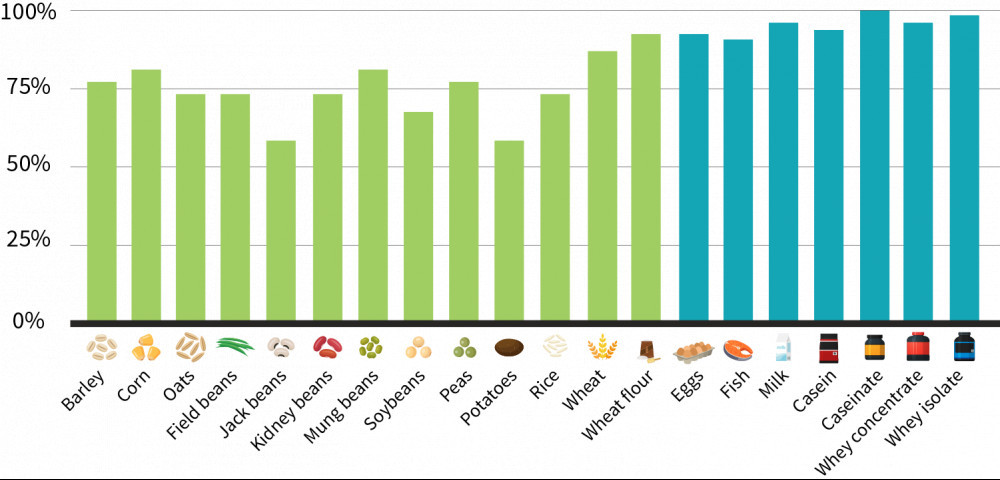
-Three ounces of skinless chicken – 28 grams
-Three ounces of steak – 26 grams
-Three ounces of turkey – 25 grams
-Three ounces of tuna or salmon – 22 grams
-Three ounces of shrimp – 20 grams
-Six ounces of Greek yogurt – 18 grams
-Four ounces of one percent fat cottage cheese – 14 grams
-One ounce of soy nuts – 12 grams
These are high-protein foods, but nearly all foods have protein. Just a one fist-sized serving of broccoli, for instance, has three grams of protein. A one ounce serving of nuts or seeds has between four and seven grams of protein. One cup of brown rice has more than five grams of protein. You can and should include a variety of meat, poultry, fish, dairy, and plant-based foods into your nutrition to meet your protein needs. White fish and white meat are the leanest choice, but even dark meat can be a good choice if you skip the skin. Both chicken and turkey give you about 25 grams of high-quality protein, along with B vitamins and selenium.
Why is protein so important?
If your primary goal is fat loss, prioritizing protein intake while eating at a caloric deficit allows your body to maintain muscle mass while burning body fat for fuel so you can achieve a leaner, toned physique. It is also the most satiating macronutrient and can curb hunger, thus making it easier to stay on target and not over consume too many calories higher in carbs or fats. It also has a thermic effect of food which as you learned in the calories post means that it takes more calories to digest protein than it does carbs and fats.
Hitting your protein intake will also help avoid the metabolic slowdown that comes with weigh loss due to its ability to maintain muscle tissue. Secondly, if someone has a muscle gain or performance goal, they should consume adequate amounts of protein and will be more likely to maintain and build increased muscle. If you have a performance goal to increase muscle, this means more muscular output and better overall performance. Consuming adequate protein with a muscle gain goal will also help maintain a leaner physique when combined with resistance training because you could actually bulk with inadequate protein intake. If we aren’t consuming enough protein and are not completing enough resistance training, then this is where we just put on fat! Also, eating protein constantly throughout out the day for someone with muscle gain goal will allow for better recovery which is crucial due to high volume of training on a daily basis.
Lastly, what if you don’t have a fat loss or muscle gain goal and you just want to be healthier? Let’s circle back to the beginning; protein has a much bigger role than just maintaining muscle tissue. Since protein is the primary structural component in our body, consuming enough of it will aid in having stronger bones, healthier hair, skin, and nails, and maintain stronger immune system! It will also allow to have a faster and more stable metabolism due to its ability to help maintain the muscle tissue that we do have. This will help with overall health because it will maintain a healthier weight over a long-term period.
The last benefit I want to cover for someone with an overall health goal is age related Sarcopenia. This is the decline of skeletal muscle tissue with age and is one of the biggest underlying causes of functional decline and loss of independence in older adults. We can help avoid this simply because will be better equipped to stay active, which we know is a staple for long term health.

How much protein should you eat?
As you can see, there is a lot to know about protein and there are a lot of benefits to eating the adequate amount of protein in your nutrition plan when it comes to achieving your fitness and health goals. But another big thing to go over is how much do you need?
I like to keep it simple with the rule of thumb regardless of your fitness goal I would recommend one gram of protein per one pound of goal body weight. I choose this because majority of research shows that the optimal amount of protein to have in your daily diet is 0.8 – 1.2 grams per pound of lean body mass in order to maintain lean body tissue. But when is the last time you tested your lean body tissue… maybe never? Trying to use this number makes things more complicated than they need to be, so if we just use the 1 gram per pound of goal body weight, it almost always puts us in the prefect range without having to get a lean body mass test.
Protein is protein?
I recently learned that not all protein is created equal… When I say this, I am referring to protein powder. Of course, like all things, quality matters! The quality of a protein powder depends on how it was processed. You want to make sure your protein powder is coming from a low temperature
cooking source so it is denatured at least as possible. If you are going to spend the money on protein powder, then you should be getting the best for your money to see results. Otherwise, it was a waste of money because your body can’t re-nature a denatured product! Chances are if the cost is low, so is the quality. Check out my favorite whey protein here and favorite dairy free (vegan) here! If you are going to spend the money on protein powder, then you should be getting the best for your money to see results!
When completing a weight or resistance training workout, it is extremely important to supplement with protein ASAP! I will do another post about pre and post work out supplementation, meals and protein next week!
Conclusion
Protein is the primary structural component in our body that makes up hormones, enzymes, organ and muscle tissue, which all help promotes healthy bodies and immune systems.
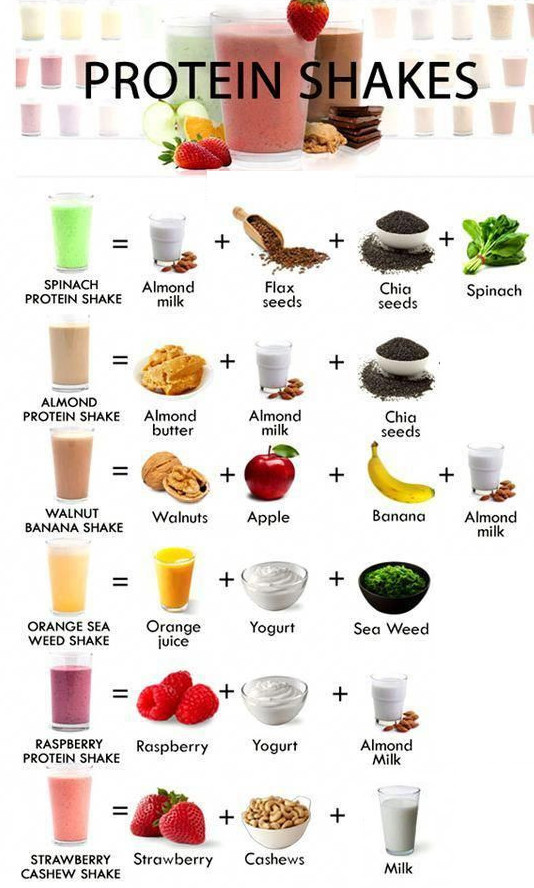
Protein is important for fat loss because it helps with satiation, avoids metabolic slowdown and maintains lean muscle tissue.
I want to wrap all this up by reminding you that this is one of the most important topics that you can increase knowledge for achieving your fitness goals, such as hitting your protein numbers. It is generally going to be the biggest struggle for anyone trying to change their eating habits for a healthier lifestyle and body recomposition goals.
If you would like help to figure out how to add in more protein to your diet or help to track how much you are consuming, please don’t hesitate to reach out!
I mentioned before I use the 1st Phorm app for all of my meal, macro, calories and protein tracking! It is $12.99 a month if you use my link here, then as you enter all of your nutrition info daily. I can see it, keep you accountable and help you figure out what changes need to be made to help your goals become a reality. *I do not make money off of the app. I can just work with you to help keep you accountable and on track to reach your goals!
As always, leave any questions or comments below!
Aloha
Kat
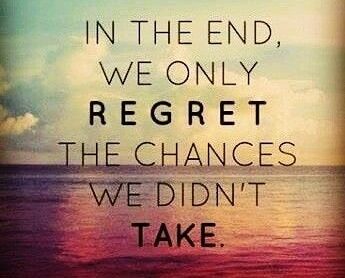

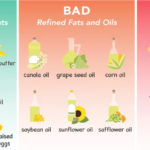


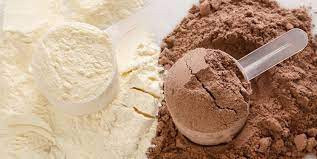
2 responses to “Why is protein so important?”
Loving the info and your upbeat and realistic approach to breaking all this down! I’ll definitely be referring to this article to get the right amount of protein in my diet!
thank you so much! I try to break it down in an easy way!